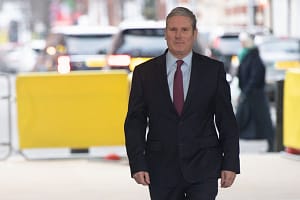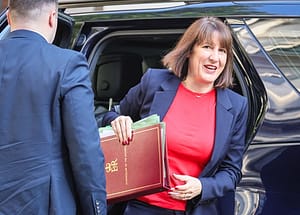Over half of the UK’s four million self-employed people wait until their tax return is complete to budget for their upcoming payments, and a further 15% say they do not yet have enough money set aside for their next tax bill.
The insights, revealed in a survey of 500 self-employed people in the UK for GoSimpleTax, indicate that tax is a key problem for the self-employed with the current system not allowing them to budget appropriately.
A quarter of those asked said they think self-employed people pay too much tax compared to those in employment, and many self-employed people say they struggle to maintain good financial health. Just 38% have a pension and only 57% have savings set aside – leaving a huge 43% with no savings.
Mike Parkes, tax expert at GoSimpleTax, said: “The UK’s four million self-employed people are facing a tax timebomb. Over half say they haven’t budgeted for their next tax bill which will be due at the end of January 2023, while 15% have tried to budget but still face a shortfall. When we also consider that two in five don’t have any savings, this presents a huge problem.
“We expect to see a freeze in tax rates which could plunge the self-employed into dire straits. Frozen tax bands and allowances effectively mean no inflationary increases in the tax-free personal allowance, making it even harder for the country’s self-employed to set money aside for future tax bills.”
An expected tax band freeze would mean no change to the rate of income tax payable on earnings. Everyone in the UK can earn up to £12,570 tax free. The rate of tax payable is then 20% on earnings between £12,571 and £50,270, then 40% on earnings between £50,271 and £150,000.
The British Government is pressing ahead with plans to adopt Making Tax Digital for Income Tax from April 2024. Under Making Tax Digital for Income Tax, sole traders and landlords with turnover in excess of £10,000 will need to keep their accounting records electronically and submit quarterly returns to HMRC, followed by an end of period statement at the end of the tax year. Currently, these people need only file a single return – the annual self-assessment tax return, due on 31 January each year.
Mike added: “When we remember that this group of people often feel they were excluded from support during the Covid-19 pandemic, it is even more important that the Government gives a true recognition of the scale of the impact that tax band freezes will have on the country’s self-employed.”
The country’s self-employed contribute an estimated £303 billion to the British economy each year, according to The Association of Independent Professionals and the Self-Employed (IPSE).
Making Tax Digital forms a key part of the Government’s plans to make managing tax easier. It is already in place for all VAT-registered companies, who must use approved software to submit their VAT returns. Plans to introduce Making Tax Digital for Corporation Tax are currently subject to a Government consultation.






Leave a Comment